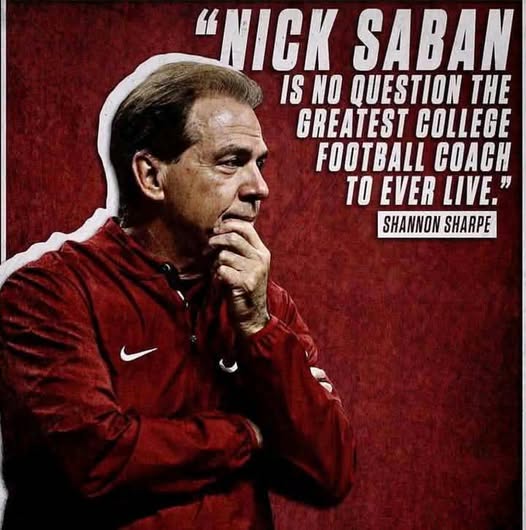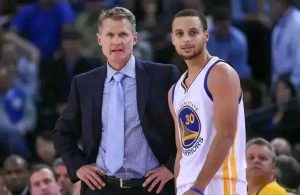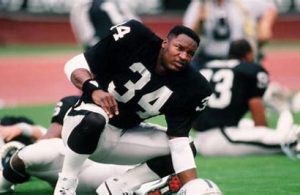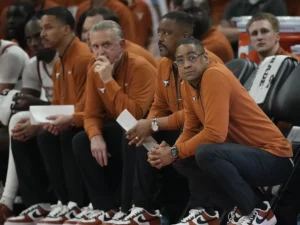
“Is Nick Saban the Greatest College Football Coach to Ever Live?” ignites a worldwide sports frenzy – Alabama’s legendary coach’s dynasty Fans Say Saban Is Revisited in New Documentary, Analysts Consider Seven National Titles, Unmatched Legacy, and Cultural Impact
In the world of college football, few names elicit as much awe, debate, and respect as Nick Saban. Now, more than a year removed from his official retirement, the legendary coach is once again dominating headlines—not for a comeback, but for a newly released documentary that reopens the question: Is Nick Saban the greatest college football coach to ever live?
The ESPN-produced documentary, Dynasty: The Saban Standard, delves deep into the career of the seven-time national champion, tracing his rise from modest beginnings in West Virginia to becoming the face of one of the most dominant programs in the history of American sports. As fans, former players, and analysts revisit the highs and lows of his iconic career, the sports world is reigniting the debate over Saban’s place in the pantheon of coaching legends.
Saban’s legacy is often boiled down to the numbers—and they are staggering. Over 28 seasons as a head coach, including historic runs at LSU and, most famously, Alabama, Saban amassed 292 wins, 17 division titles, 11 SEC championships, and seven national championships—the most by any coach in the modern era. Under his leadership, Alabama became synonymous with excellence, routinely finishing in the top 10 and sending a flood of NFL-ready talent to the next level.
Analysts point to Saban’s unparalleled consistency as his defining trait. “Saban didn’t just build a dynasty,” said Kirk Herbstreit in the documentary. “He reinvented the concept. He adapted through different eras—pro-style offenses, spread systems, NIL, the transfer portal. Whatever the challenge, he met it head-on and won.”
Beyond wins and trophies, Saban’s impact reached into the very fabric of college athletics. He transformed Alabama’s brand from a historically proud program into the unquestioned epicenter of college football dominance. He elevated recruiting to an art form, pioneered the use of NFL-style support staff, and treated roster management with the precision of a Fortune 500 CEO.
“He was more than a coach—he was a system,” said former Alabama quarterback Bryce Young. “We didn’t just learn football. We learned discipline, process, and how to compete at the highest level every single day.”
His famed “Process”—a methodical, relentless commitment to preparation and execution—became a cultural philosophy embraced far beyond Tuscaloosa. CEOs, military leaders, and coaches from other sports have cited Saban as an influence.
Of course, naming someone the greatest inevitably invites comparisons. Bear Bryant, Saban’s iconic Alabama predecessor, won six national titles in a much different era. Urban Meyer, Pete Carroll, and Dabo Swinney had their moments of brilliance, but none maintained Saban’s longevity or adapted as successfully to evolving landscapes.
Even coaching giants outside college football—like Bill Belichick—have credited Saban with an unmatched attention to detail and leadership prowess. The two coached together with the Cleveland Browns in the 1990s, and Belichick remains one of Saban’s closest confidants.
“Nick could outwork anyone,” Belichick said during a featurette promoting the documentary. “But more importantly, he could outthink them. That’s what separated him.”
More than 40 of Saban’s former players appear in the documentary, from Julio Jones and Mark Ingram to Tua Tagovailoa and Will Anderson. The stories share a common thread: Saban demanded more than most thought they could give—and made them better for it.
“We all feared letting him down,” said former linebacker Dont’a Hightower. “Not because he yelled, but because you knew how much he cared about winning the right way.”
It’s no coincidence that Saban’s tenure produced dozens of first-round draft picks and NFL stars. But what many emphasize is how Saban mentored his players beyond the field, preaching academic commitment and personal accountability.
When Saban announced his retirement in January 2024, the college football world was stunned. Though Alabama had fallen just short of another national title the season before, many believed he still had more years to give. Yet, true to form, Saban stepped away on his own terms—at the top, with nothing left to prove.
His departure marked the end of an era. SEC rivals breathed a sigh of relief. Alabama fans mourned. And the sport began a new chapter shaped forever by the world Saban built.
So, is Saban the GOAT?
For many, the answer is a resounding yes. “There will never be another Nick Saban,” said Rece Davis during a roundtable panel in the documentary. “He didn’t just win. He reshaped everything.”
Yet some purists argue the question isn’t so easily settled. They point to the different eras, the evolution of the sport, and the contributions of figures like Bryant, Knute Rockne, and Tom Osborne. Still, the overwhelming consensus among modern analysts and fans seems clear.
A recent ESPN poll asked, “Who is the greatest college football coach of all time?” The results:
-
Nick Saban – 73%
-
Bear Bryant – 12%
-
Urban Meyer – 6%
-
Others – 9%
Social media has erupted with testimonials, debates, and memes crowning Saban the “GOAT,” complete with fan art of Saban wearing a crown made of championship rings.
As the documentary continues to trend globally, one thing is evident: Nick Saban’s legacy is no longer just a sports story—it’s a cultural monument. His impact stretches from Alabama’s locker room to Wall Street boardrooms, from NFL stadiums to middle-school football fields.
He demanded excellence, defined greatness, and delivered dominance over two decades.
Whether the debate ever fully ends is up for discussion. But one thing is certain: When you talk about college football’s Mount Rushmore, Nick Saban’s face is already carved in stone—and it’s probably wearing a headset.





